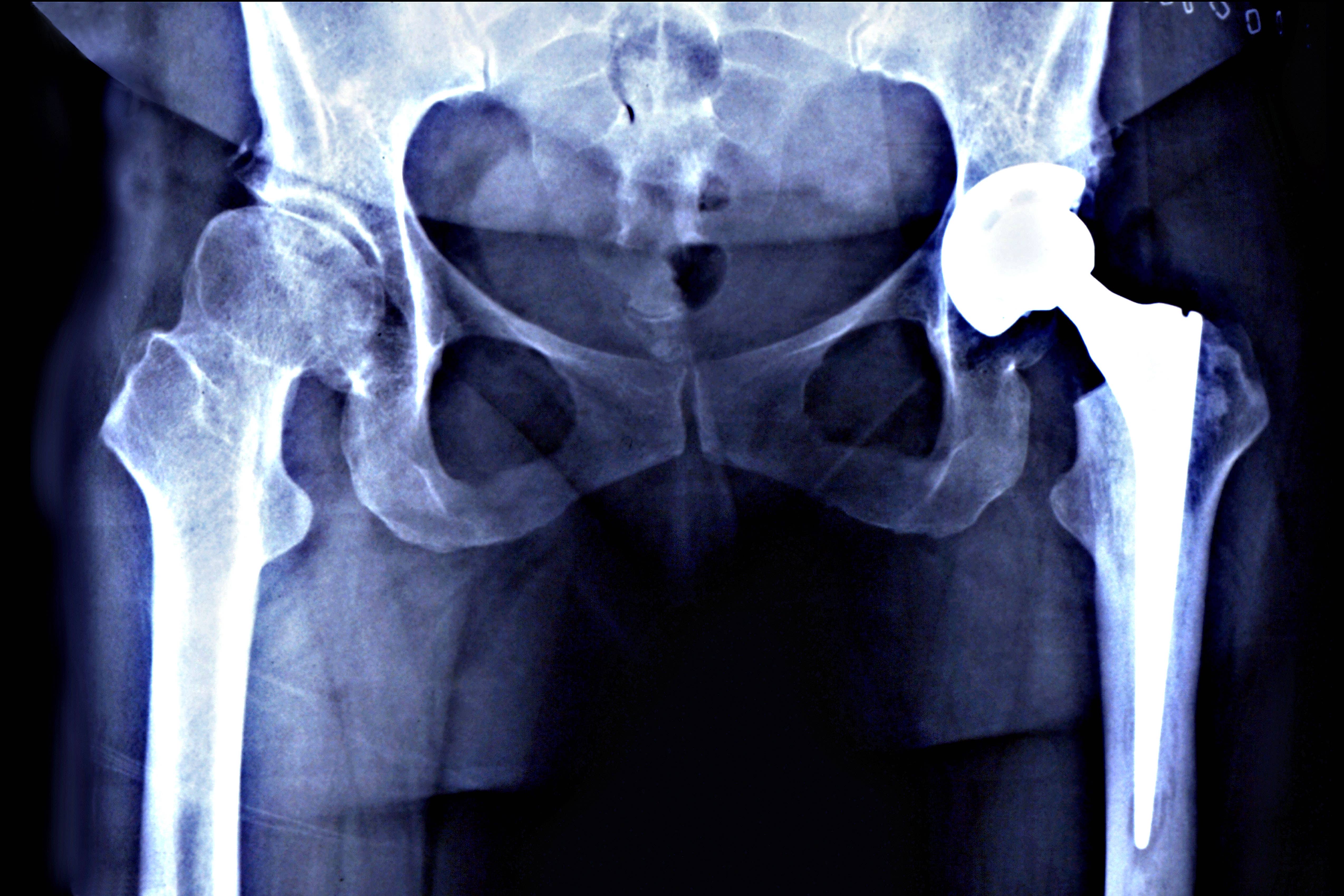AI could help cut waiting times for joint replacements, research suggests
A study at the University of Aberdeen has been published in the Bone and Joint Journal.

Your support helps us to tell the story
From reproductive rights to climate change to Big Tech, The Independent is on the ground when the story is developing. Whether it's investigating the financials of Elon Musk's pro-Trump PAC or producing our latest documentary, 'The A Word', which shines a light on the American women fighting for reproductive rights, we know how important it is to parse out the facts from the messaging.
At such a critical moment in US history, we need reporters on the ground. Your donation allows us to keep sending journalists to speak to both sides of the story.
The Independent is trusted by Americans across the entire political spectrum. And unlike many other quality news outlets, we choose not to lock Americans out of our reporting and analysis with paywalls. We believe quality journalism should be available to everyone, paid for by those who can afford it.
Your support makes all the difference.Artificial intelligence (AI) designed to identify patients needing joint replacement surgery could “significantly” cut waiting times, research suggests.
The study found AI can lower costs and improve surgical efficiency, which the lead researcher said could change the lives of those who have been stuck on waiting lists for years.
Luke Farrow, clinical research fellow from the University of Aberdeen who led the study, said: “We identified that the radiologist’s summary of X-ray findings can be successfully used to help predict which patients referred for consideration of hip replacement will go on to have surgery.
“This is the first comprehensive study to confirm the potential of artificial intelligence in this field.
“Using this AI tool in clinical practice would allow for rapid automated review of many patients which would likely significantly improve efficiency and reduce associated costs.
“This could change the lives of thousands of patients who have been waiting for years to reach the top of surgical lists.”
The study, published in the Bone and Joint Journal, found the AI algorithm needs further training according to the specific characteristics of the healthcare setting it is used in.
Dr Farrow said: “The effectiveness of the developed AI algorithm deteriorated significantly when faced with radiology reports from a different healthcare setting, indicating a need for further training on a wider, more diverse population.
“Further development is needed to ensure that the algorithm works better when applied to new healthcare settings, such as different NHS trusts.
I have heard horror stories of people waiting years for hip replacements, so if it can be used to help patients receive a swifter diagnosis and remedial surgery where required it can only be seen as a positive
“With any AI algorithm it is important to ensure that it functions effectively in the real world.”
A trail runner considering a private hip replacement after being left in pain praised the potential for AI to cut waiting times.
Steven Lewis, 52, began to notice hip pain while training.
He says it began as a reduction in mobility and a niggling pain, which developed into a limp and chronic pain.
Mr Lewis, of Aberdeenshire, went from running the hills in his area to being unable to sit or sleep without pain for several months.
He said: “I moved to Scotland more than a year ago and have yet to find a GP that will take me.
“I have seen the reports of people having to wait years for hip replacements and I knew I couldn’t wait that long.
“The pain was having a huge impact on my life – I missed running of course, but more than that, I couldn’t get any relief from it – even when I was trying to sleep.”
Mr Lewis is able to access private healthcare through his employer and is now considering private hip replacement surgery.
He said: “Data-enabled decision-making to support humans is now at the forefront of technology and has huge potential across many industries.
“I have heard horror stories of people waiting years for hip replacements, so if it can be used to help patients receive a swifter diagnosis and remedial surgery where required it can only be seen as a positive.”
It is hoped that with ongoing further development of the technology, it will be available within the NHS in the next few years.